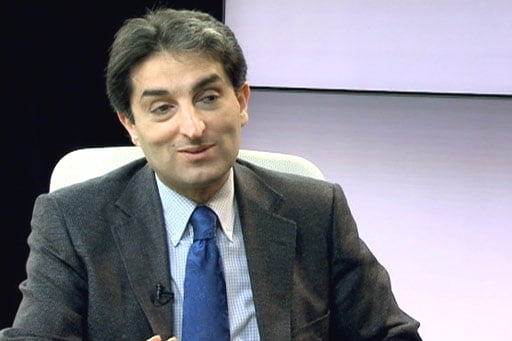Turkish Schools Struggle to Exist in Afghanistan

Date posted: May 14, 2001
Selcuk Gultasli, May 12, 2001
Turkish schools founded by Turkish entrepreneurs in Afghanistan in 1995 are now struggling to stay in the country after being accused by the Taliban administration of spreading Turkish nationalism and making pan-Turkic propaganda.
The Taliban administration, which is not recognized by Turkey, has been applying one of the most radical and controversial versions of sunni Islam in the country, causing many problems internationally.
The Afghan-Turk CAG Educational (ATCE) nongovernmental organization (NGO) has opened 6 high schools in the last 6 years and has started constructing the buildings of a university in one of the most illiterate countries in the world. The ATCE, which started its activities in August, 1994 with a reference letter from former President Suleyman Demirel, was welcomed by the Afghan mujahedeen. However, with the Taliban ruling, relations have become strained as Turkish schools have been viewed as propaganda centers for Turkey, the Turkish language and Turkish nationalism.
The Taliban administration has notified the Turkish schools management that they have to leave the country and transfer the facilities to Taliban officials. Because the request has been made verbally, the ATCE insists that the request should be made in written form.
There is a striking irony with the schools. The ATCE is known to be close to Fethullah Gulen, one of the prominent Islamic scholars in Turkey pursuing many educational facilities both at home and abroad. However Gulen, who is accused of being a fundamentalist in Turkey and is being sued by the State Security Court on charges of overthrowing the secular regime and to create a fundamentalist Islamic state instead is, now faces the danger of being ousted from Afghanistan by the Taliban on charges of making secular Turkey’s propaganda and spreading Turkish language. Sources close to Gulen told the Turkish Daily News that Gulen wants Turkish to be one of the most prominent languages around the world and claimed that it is a pity he has been accused of being a fundamentalist.
The ATCE authorities have contacted the president of the Taliban administration Molla Omer and asked him to review their decision. The Minister of Education Molla Muttaqi is known to be behind the decision to close down the Turkish schools. It was learned that efforts to stop the decision to close the schools have so far failed.
ATCE, which is a registered international NGO, has invested $3 million in Afghanistan since 1995. Presently it is serving in the fields of education and emergency relief. It has been coordinating relief activities with all the UN offices such as UNHCR, WHO, ICRC, UNOCHA, WFP, UNICEF, UNDP, UNPF and HABITAT.
Turkey prepares to act for schoolsIt has been learned that the Turkish Embassy in Islamabad has twice notified the Foreign Ministry about the developments over Turkish schools in Afghanistan by notes dating April 25 and May 4. Though the Foreign Ministry keeps a low profile on Turkish schools abroad, it is known that the Ministry approves Gulen schools, as dubbed in the media, and underlines that they do serve the interests of Turkey abroad, spreading Turkish culture and language.
Turkey does not recognize the Taliban administration but accepts it as a reality. Ankara has kept its relations with Kabul at the ambassadorial level. Deputy Undersecretary Ambassador Aydemir Erman has twice visited Afghanistan. Another high-level delegation is expected to visit Afghanistan late May.
Turkey has also invested in Afghanistan besides Turkish NGOs. Afghanistan was the second country which recognized Turkey after the former USSR in the early 1920s. Hospitals, military academies, and a faculty of political science were created with Turkish aid in Afghanistan under the orders of the founder of the republic, Mustafa Kemal Ataturk.
Source: Turkish Daily News May 12, 2001
Tags: Afghanistan | Asia | Education | Hizmet-inspired schools |
























